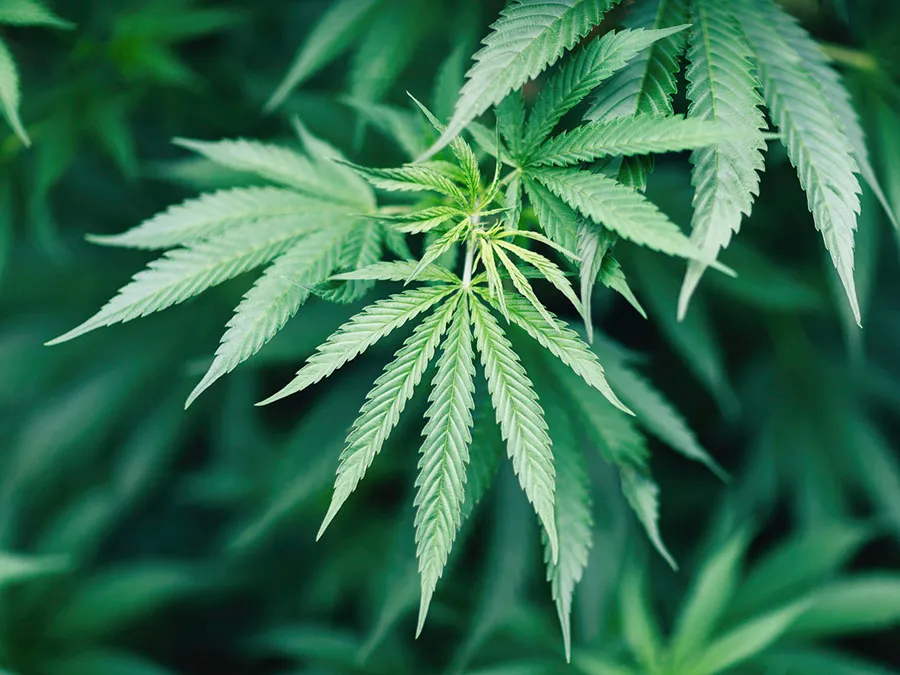The Biden administration is on the brink of a monumental shift in the federal government’s stance on marijuana, with a proposed plan that would no longer classify marijuana among the most dangerous and addictive substances.
In what could mark the most significant alteration in marijuana policy since its initial prohibition, the Drug Enforcement Administration (DEA) is set to seek public input on a proposal to reclassify marijuana under the Controlled Substances Act. This information comes from a source familiar with the process, as first reported by The Associated Press.
The Department of Justice (DOJ) will recommend reclassifying marijuana from a Schedule I drug to a Schedule III drug to the White House Office of Management and Budget. The source, speaking on condition of anonymity, indicated that the Justice Department is expected to transmit the recommendation today.
While the proposal wouldn’t outright legalize marijuana at the federal level, it would entail reclassifying it from a Schedule I drug—previously deemed highly dangerous, addictive, and lacking medical utility—to a Schedule III drug that can be legally prescribed as medication. Since the enactment of the Controlled Substances Act in 1970, marijuana has remained a Schedule I drug.
Paul Armentano, deputy director of the National Organization for the Reform of Marijuana Laws (NORML), hailed the move as a significant step forward. He emphasized the importance of federal agencies, particularly the DEA and FDA, publicly acknowledging what many patients and advocates have long recognized: that cannabis can serve as a safe and effective therapeutic agent for millions of Americans.
Despite this bureaucratic shift representing progress, it falls short of fully addressing the disparities between federal restrictions and the laws of numerous states that have sanctioned both medical and recreational marijuana use.
Armentano expressed concern that rescheduling marijuana to Schedule III fails to adequately resolve this conflict, as existing state legalization laws will continue to clash with federal regulations. This perpetuates the divide between state and federal marijuana policies, he argued.
The proposal to reschedule marijuana enjoys widespread support among voters. A recent nationwide survey commissioned by the Coalition for Cannabis Rescheduling Reform found nearly 60% of likely voters in favor of rescheduling, with the highest support among younger voters aged 18 to 25.
For decades, marijuana has been categorized under the Controlled Substances Act as a Schedule I drug, alongside substances like heroin, LSD, and ecstasy. However, President Joe Biden directed the Department of Health and Human Services to review marijuana’s classification in 2022, leading to a recommendation last year that it be rescheduled to Schedule III.
While rescheduling marijuana would not legalize recreational use, it could ease the burden on cannabis companies facing significant federal taxation, as they have been treated as drug traffickers for tax purposes.
However, rescheduling does not mean unrestricted use. Jay Wexler, a professor at Boston University specializing in marijuana laws, emphasized that marijuana would still be a controlled substance under the new classification. He believes this move signals the federal government aligning more closely with public opinion and medical consensus on the therapeutic benefits and risks of marijuana.
Despite the potential benefits, concerns remain about the health implications of marijuana use. While marijuana has been associated with pain relief, particularly for patients with chronic pain, its long-term effects include potential IQ loss, temporary paranoia and hallucinations, and exacerbation of symptoms in individuals with schizophrenia.
Moreover, smoking marijuana carries similar health risks to tobacco smoking, including respiratory issues and an increased risk of heart attack and stroke. A recent study linked daily marijuana use to a higher chance of heart attack and stroke compared to non-users.
While the therapeutic benefits of marijuana are recognized, more research is needed to fully understand its health effects. While some cannabinoid drugs have received FDA approval for specific medical uses, further studies are necessary to determine marijuana’s efficacy and safety for various health conditions.















































